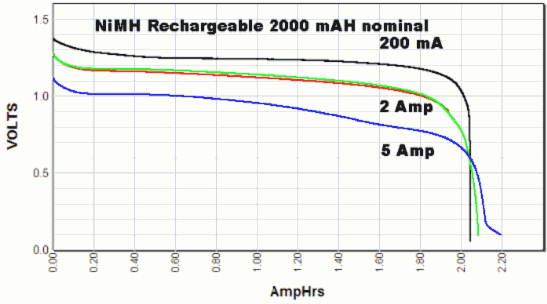I have a 4 NiMh AA HR6 batteries each with a capacity of about 2000mah. And am working on a LED project which requires 500ma but I need to power it up with a voltage of around 5v. So I was planning to hook these 4 batteries together in series to achieve that level of voltage.
But here are my concerns these 4 batteries are not of same make. Two batteries are GP Recyko and two are Kodak Digital camera batteries. Does it poses a problem when i connect batteries of different make in series.
Moreover I have recharged the battery two days back and when i measured the voltage none of them seems equal even the batteries of same make. The batteries measured 1.24, 1.31, 1.30, 1.27 respectively. If i do connect these batteries together what will be the resultant output voltage?
If this is good to proceed how long can i safely draw 500ma from these batteries?

